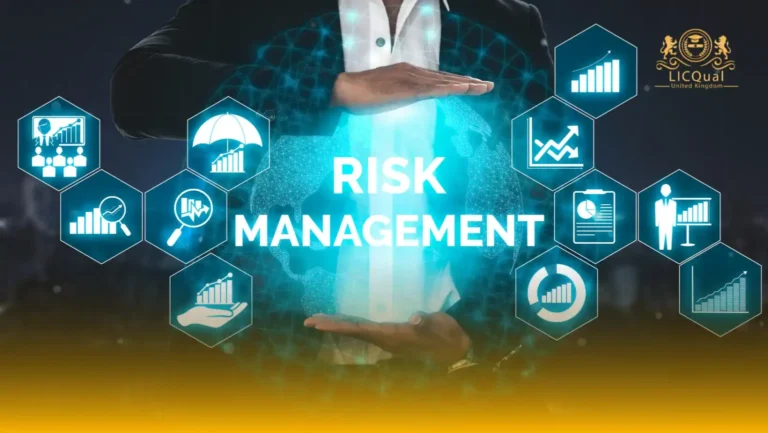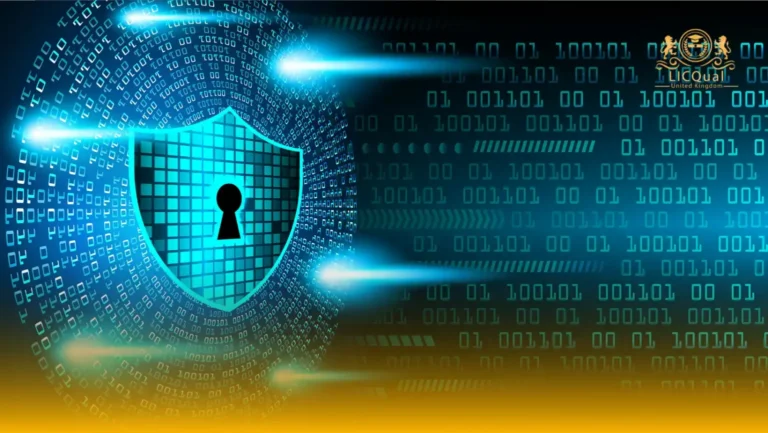Welcome to the LICQual ISO/IEC Internal Auditor 27001:2022 Information Security, Cybersecurity, and Privacy Protection course! In today’s rapidly evolving digital landscape, information security and privacy are paramount. This course is designed for professionals seeking to gain a comprehensive understanding of ISO/IEC 27001:2022, the global standard for Information Security Management Systems (ISMS).
Whether you’re an experienced auditor or a newcomer to the field, this course will equip you with the skills needed to assess and ensure robust cybersecurity and privacy protection within organizations. By completing this course, you will be prepared to conduct internal audits that align with ISO/IEC 27001:2022, helping organizations mitigate risks and safeguard sensitive information.
As cyber threats continue to evolve, businesses must implement stringent security measures. ISO/IEC 27001:2022 provides a framework for managing sensitive information securely, ensuring data confidentiality, integrity, and availability. This course will guide you through the essential concepts of information security, focusing on the critical role of internal auditors in maintaining cybersecurity defenses and privacy protection across diverse sectors.
The LICQual ISO/IEC Internal Auditor 27001:2022 Information Security, Cybersecurity, and Privacy Protection course provides an in-depth exploration of the ISO/IEC 27001:2022 standard and its application within the context of information security, cybersecurity, and privacy. You will learn the core principles of establishing, implementing, and auditing an Information Security Management System (ISMS) that meets ISO/IEC 27001:2022 requirements.
This course covers key topics, including risk assessment, security controls, privacy protection, and compliance requirements. You will develop practical skills to conduct internal audits, evaluate an organization’s ISMS, and ensure that cybersecurity measures and privacy policies are effectively implemented. Upon completion, you will be equipped to manage audits that safeguard sensitive data, prevent cyber threats, and ensure compliance with global privacy standards.
Whether you are looking to enhance your audit career or strengthen your organization’s information security practices, this course is an essential step in becoming an expert in ISO/IEC 27001:2022 and the evolving fields of cybersecurity and privacy protection.
Course Overview
Qualification Title
LICQual ISO/IEC 27001:2022 Information Security, Cybersecurity and Privacy Protection
Total Units
6
Total Credits
40
GLH
120
Qualification #
LICQ2200121
Qualification Specification
To enroll in the LICQual ISO/IEC 27001:2022 Information Security, Cybersecurity and Privacy Protection ,applicants must meet the following criteria:
|
Qualification# |
Unit Title |
Credits |
GLH |
|---|---|---|---|
|
LICQ2200121-1 |
Introduction to ISO/IEC 27001:2022 and Information Security Management Systems (ISMS) |
8 |
24 |
|
LICQ2200121-2 |
Risk Management and Assessment in Information Security |
8 |
24 |
|
LICQ2200121-3 |
Security Controls and Measures in ISO/IEC 27001:2022 |
6 |
18 |
|
LICQ2200121-4 |
Privacy Protection and Data Security Regulations |
6 |
18 |
|
LICQ2200121-5 |
Internal Auditing for Information Security and Cybersecurity Compliance |
6 |
18 |
|
LICQ2200121-6 |
Continuous Improvement and Incident Management in Information Security |
6 |
18 |
By the end of this course, learners will be able to:
Introduction to ISO/IEC 27001:2022 and Information Security Management Systems (ISMS)
Upon completion of this unit, learners will be able to:
- Understand the core principles and structure of ISO/IEC 27001:2022 and its role in managing information security risks.
- Explain the concept of Information Security Management Systems (ISMS) and their significance in protecting sensitive data.
- Recognize the key requirements and benefits of implementing ISO/IEC 27001:2022 in an organization.
- Understand the relationship between ISO/IEC 27001:2022 and other security and privacy standards.
Risk Management and Assessment in Information Security
Upon completion of this unit, learners will be able to:
- Apply risk assessment methodologies to identify and assess information security risks.
- Develop and implement effective risk treatment plans in alignment with ISO/IEC 27001:2022.
- Understand how to evaluate the potential impact of security risks and prioritize actions to mitigate them.
- Implement strategies to manage information security risks and align them with the organization’s business objectives.
Security Controls and Measures in ISO/IEC 27001:2022
Upon completion of this unit, learners will be able to:
- Understand and implement key security controls required by ISO/IEC 27001:2022 to protect organizational information assets.
- Evaluate the effectiveness of security measures such as access control, encryption, and network security in maintaining information confidentiality, integrity, and availability.
- Tailor security controls to the specific needs of the organization, ensuring ongoing compliance and robust defense against cyber threats.
Privacy Protection and Data Security Regulations
Upon completion of this unit, learners will be able to:
- Understand the principles of privacy protection and data security regulations, including GDPR and other global data protection laws.
- Integrate privacy protection practices into an ISMS to ensure the confidentiality and integrity of personal data.
- Implement privacy by design and by default within the organization’s security management framework.
- Ensure compliance with privacy regulations and mitigate risks associated with data protection breaches.
Internal Auditing for Information Security and Cybersecurity Compliance
Upon completion of this unit, learners will be able to:
- Conduct internal audits of ISMS to assess compliance with ISO/IEC 27001:2022 requirements.
- Plan and execute audits to evaluate the effectiveness of information security controls and identify gaps or non-conformities.
- Provide recommendations for corrective actions and improvements in information security practices.
- Understand the role of internal auditing in maintaining a secure and compliant ISMS.
Continuous Improvement and Incident Management in Information Security
Upon completion of this unit, learners will be able to:
- Apply continuous improvement principles to enhance the performance of an ISMS and strengthen organizational security.
- Implement processes for monitoring, measuring, and reviewing the effectiveness of information security measures.
- Manage information security incidents by applying incident management procedures and performing post-incident analyses.
- Use lessons learned from security incidents to drive improvements and prevent future breaches.
This diploma is ideal for:
Assessment and Verification
All units within this qualification are subject to internal assessment by the approved centre and external verification by LICQual. The qualification follows a criterion-referenced assessment approach, ensuring that learners meet all specified learning outcomes.
To achieve a ‘Pass’ in any unit, learners must provide valid, sufficient, and authentic evidence demonstrating their attainment of all learning outcomes and compliance with the prescribed assessment criteria. The Assessor is responsible for evaluating the evidence and determining whether the learner has successfully met the required standards.
Assessors must maintain a clear and comprehensive audit trail, documenting the basis for their assessment decisions to ensure transparency, consistency, and compliance with quality assurance requirements.







